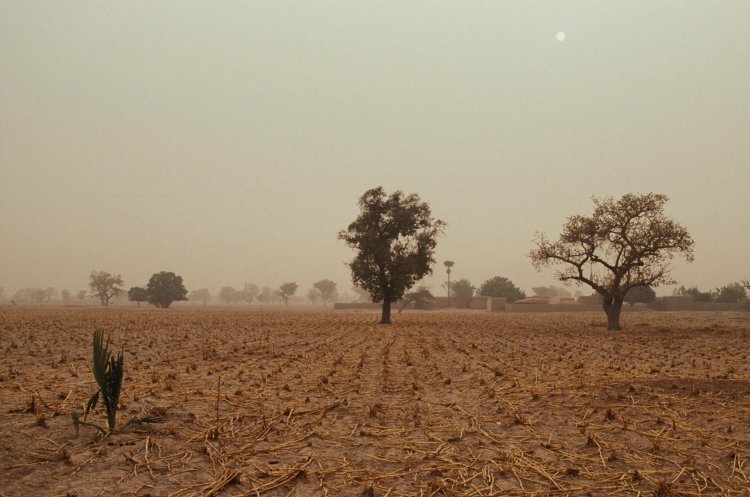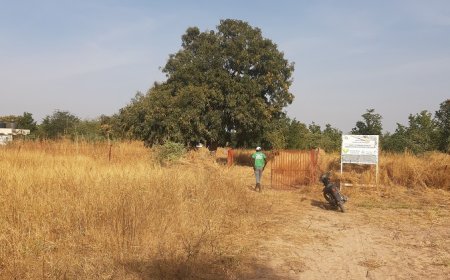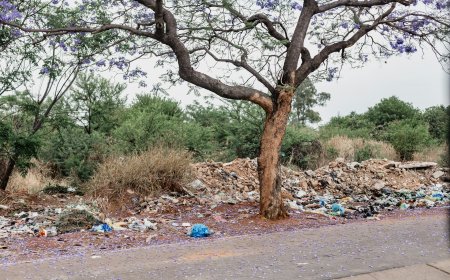The Einstellung effect has been known to psychologists since the 1940’s. It identifies the human tendency of solving problems in the most familiar way possible, even though better or more appropriate solutions may exist. Europe and Africa have an opportunity to reconsider a shared opportunity or divergent path in the arena of climate diplomacy. Being in the same place on issues relating to adaptation and resilience would be a good start. Climate concerns involve broader implications today than the physical environment itself. They increasingly revolve around new forms of geoeconomics and geopolitics which are driven by obligations to meet net-zero targets.
Adaptation to climate change is premised on adjusting to current or expected climate change, especially in the most vulnerable economic sectors and infrastructure investments, rather than simply pursuing an approach that tries to tackle problems solely through mitigation efforts. In many cases, this is already too late for both Africa and Europe since climate vulnerability is already evident in the rise of frequency of occurrences in extreme weather patterns.
Africa’s green-house gas emissions are disproportionately low, yet it is paying the cost of the fossil fuel dependency of the world's advanced economies. The challenge here is to recognise that adaptation and resilience are important for building sustainable economies in Africa. But first, we must address this as part of a whole economic solution rather than the ghettoization of adaptation to be solved remotely through development aid assistance. This approach also does nothing to prevent or reduce the emission of green-house gasses.
With Africa preparing to host COP27 at the end of 2022, the conference of global parties dedicated to tackling climate issues presents an opportunity to reconsider outdated and ineffective strategies. The proceedings of European partnership negotiations could be utilised to turn the narrative of adaptation on its head by re-orienting the discussions away from aid towards genuine economic partnership between two interdependent continents that share history, trade and culture.
Climate diplomacy in Africa needs a more economically nuanced approach than a narrow discourse between negotiators around climate finance and adaptation. The USD 100 billion climate finance target is already unrealistic. Africa would not be dependent on climate or financial development assistance if it was in a position to develop a more sustainable and resilient economy. Making this a reality should be the focus of diplomatic exchange between Africa and Europe.
Discourse around adaptation regularly manifests in Eurocentric responses to the issues of migration, conflict and security in Africa. Such discourses often lack critical imagination on the part of African diplomats themselves, who regularly infuse adaptation with other generalised stereotypes of the continent and unwittingly reinforce a distorted view of Africa as being a vast, poverty ridden landscape that is forever dependent upon foreign assistance. Such generalisations inform the tone and manner of negotiations, restricting their scope and limiting their potential solutions.
A shift in narrative is required to tell a different story. The technical discourse around Africa must be displaced in favour of a compelling agenda that pursues economic reform, clean electricity and regional integration. These issues have never been more urgent than they currently are.
Such a shift in narrative can be seen in the recent decision of Pacific Island states to refer to themselves as ‘large ocean states’ in the context of climate diplomacy. In rejecting the definition of themselves by outsiders as ‘small island states’, Pacific Islanders have drawn attention to the historical mechanisms by which they came to be misrepresented: Long before Captain Cook ‘discovered’ New Zealand and Australia, the islanders inhabited a mass of blue water that they alone had the skills to navigate and successfully survive in. For the Pacific Islanders, the oceans constitute their real homes and territorial space. The islands, on the other hand, form their land outposts.
Europe is also subject to the limitations presented by the false binary between mitigation and adaptation. 2021 gave scientists a glimpse of what 3 degrees Celsius above the norm will look like in day-to-day life. Floods, wildfires and other extreme weather patterns in Europe and North America are bringing adaptation closer to home and exposing the vulnerabilities of advanced economies in the process. They also reveal a lack of preparedness on the part of such economies to respond to the shifting conditions presented by the climate crisis. As noted in a recent Der Spiegel article, the floods that devastated Germany this year have extinguished the northern latitude’s political position, emerging from the fall of the Berlin wall in 1989, of expecting to live eternally in boundless prosperity and tranquillity.
We are now witnessing nature's blowback against the decades long culture of the industrial north capitalising on cheap coal and fossil energies. A situation in which the north concerns itself solely with emissions reductions whilst leaving adaptation to the south is no longer viable. No such neat division exists as far as mother earth is concerned. The work of Prussian explorer Alexander Humboldt, particularly his seminal piece Cosmos, illustrates the interconnected nature of life and material earth. The circularity of material flows emerging from the relationship between biological life and the earth’s resources delegitimise any divisions between mitigation and adaptation.
Climate diplomacy, which now forms a core element of the Africa-Europe partnership negotiations, requires an approach that honours this interdependency. This demands that the current language around adaptation, peace and security be reframed. None of the issues presented by climate change can be solved through Europe’s current strategy of ‘protective autonomy’, whereby they attempt to securitise their own borders and throw aid towards ‘problem geographies’ elsewhere. Such an approach aligns with other existing EU policies in Africa, such as in the Sahel, where the negative impact on regional economic growth and free movement of people has already been documented.
The difference between Africa and Europe is simple: Europe has a resilient economy, vast social security nets and is not dependent on foreign aid to adapt to climate change. It increasingly has a whole economy approach, especially with the European Green Deal.
Africa needs a solution that facilitates structural economic change, strengthens citizen accountability measures and moves beyond policies that perpetuate extractive models of exchange. There is no doubt that the way that the adaptation challenge is treated in Africa – from both European and African perspectives – has to be reorientated if we are to overcome the prevailing Einstellung effects as it plays out in multilateral processes.
About the Author
Saliem Fakir is the Executive Director of the African Climate Foundation. Prior to establishing the ACF, Saliem served as the Head of the Policy & Futures Unit of WWF South Africa for 11 years. Saliem has worked as a Senior Lecturer at the Department of Public Administration and Planning and an Associate Director for the Centre for Renewable and Sustainable Energy at Stellenbosch University. Prior to that, he served as Director of the World Conservation Union, South Africa (IUCN-SA) for eight years. Saliem has served on a number of Boards and is a prolific writer who contributes regularly to leading South African publications like Engineering News, Business Day and the Daily Maverick.




